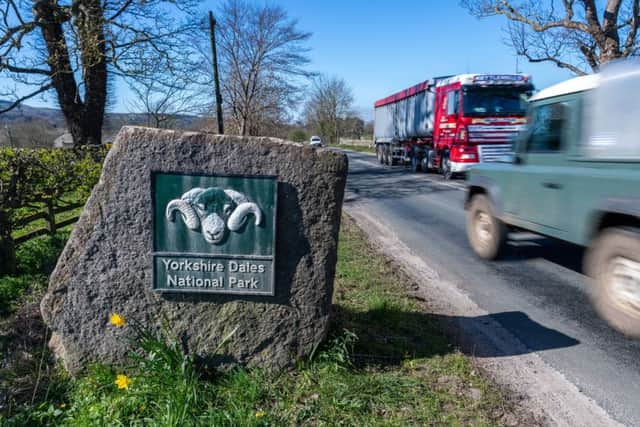Andrew Vine: Rural idyll in Yorkshire is blighted by exodus of young families as housing crisis deepens
Having left decades of clamour and commutes in the South East behind, he pictured life instead in a market town back in his native Yorkshire which was busy but not manic, where there was a balance between vibrancy and a close-knit community he can embrace and be part of.
Advertisement
Hide AdAdvertisement
Hide AdHe’s finding plenty of places with a clear sense of community, but he’s also discovering drawbacks – a lack of shops and services which might mean he has to travel miles to find a dentist or optician, or head for the nearest city when he needs anything beyond everyday basics.


Gradually, he’s coming round to thinking that it’s not practical. Finding a home on the outskirts of York or Harrogate will strike a better balance between his family’s needs and having a sense of the countryside around them.
When we were talking about this, I used the words “rural deprivation”, and he was at first taken aback.
To him, deprivation means the sink estates he sees from the train window on the commute into London and certainly not the picturesque towns and villages of North Yorkshire.
Advertisement
Hide AdAdvertisement
Hide AdBut then the penny dropped. Lack of amenities comes in many guises, and the drawbacks he was finding in some of our rural communities is undoubtedly deprivation of a sort.
Yesterday’s report in this newspaper about the problems faced by Yorkshire’s rural schools further underlined the difficulties faced by those communities – and the unforgivable neglect of them by generations of politicians of all parties.
We have schools closing because of falling pupil numbers, and more under threat as they struggle with a lack of funding. Worryingly, those at risk are no longer only village primaries, but now smaller secondaries.
Children might potentially be left with no option but to travel long distances, and in some cases parents have put their own money into keeping schools open.
Advertisement
Hide AdAdvertisement
Hide AdThis unfolding schools crisis amounts to a further chipping away of the foundations of towns and villages in the Dales or the North York Moors, where the beautiful scenery so beloved of visitors disguises some increasingly serious social problems.
The difficulties faced by schools is only the latest manifestation of these – and it is bound up with all the other factors.
Rural communities are losing young people because there is a lack of job and career opportunities for them, so they move away to the cities. A lack of affordable housing in the places where they were born and grew up also puts pressure on them to move out.
Add to that poor broadband that makes doing business and creating jobs an uphill struggle, plus a lack of public transport, and there can seem to people in their 20s and 30s more reasons to leave than stay.
Advertisement
Hide AdAdvertisement
Hide AdLast year, the Centre for Towns think-tank published a study estimating that more than a million young people had over the previous three decades abandoned small towns and villages to go looking for work in the cities.
No surprise then that couples leaving results in fewer children and falling pupil numbers in schools.
And if they start to shut in increasing numbers, it will aggravate the shredding of the countryside’s social fabric. Schools foster friendships not just between pupils, but their families as well.
They are as much a part of the landscape as the shops on the main street or market square, and as vital in bringing people together.
Advertisement
Hide AdAdvertisement
Hide AdThe schools need help urgently in the form of more funding and a fairer deal from the Government, which is biased towards those in urban areas.
But this has to happen in the context of a wider package of measures to safeguard the countryside, which in the minds of too many politicians is a sort of chocolate box image frozen in time instead of a vital cog in our economy.
It needs support in earning its living, the sort that is taken for granted by cities, not least in the provision of good broadband and the promotion of new opportunities for the young.
Successive governments have done next to nothing for the rural economy. For the Conservatives in particular, this is a matter of shame because they should be natural champions of the countryside and supportive of enterprise within it.
Advertisement
Hide AdAdvertisement
Hide AdMarket towns and villages cannot be left to fend for themselves, becoming repositories of ageing populations as the young drain away, denuded of basic amenities and services.
Condemnation is rightly levelled at the North-South divide which blights this country. But the divide between urban and rural should concern governments and those who vote for them no less. The countryside deserves a much fairer deal, and it is long overdue that it got it.